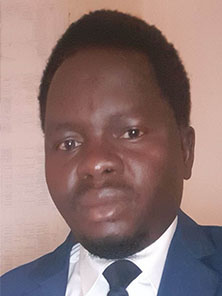By Gama Hassan Oscas
In the heart of South Sudan, a nation that has faced its share of trials and tribulations, a sinister and unjust practice continues to cast a long, dark shadow over the justice system. It is a practice that strikes at the very core of justice and the rule of law: treating suspects as if they are guilty before proven innocent. This abhorrent violation of a fundamental principle has not only eroded trust in law enforcement but also compromised the rights and dignity of individuals who have not yet had their day in court.
The principle of “innocent until proven guilty” is a cornerstone of any just and fair legal system. It is a principle deeply enshrined in international human rights conventions, as well as in South Sudan’s own constitution. Article 19(2) of the Universal Declaration of Human Rights unequivocally states, “Everyone charged with a penal offence has the right to be presumed innocent until proven guilty according to law in a public trial at which they have had all the guarantees necessary for their defense.” Similarly, South Sudan’s Transitional Constitution of 2011 in Article 19(1) proudly declares, “Every accused person is presumed innocent until proved guilty according to law.”
Yet, in the streets and precincts of South Sudan, this principle often seems forgotten or disregarded. Suspects, regardless of the gravity of their alleged crimes, are frequently treated as if their guilt is a foregone conclusion from the moment they are apprehended. This flagrant violation of their rights and dignity is nothing short of a travesty.
The manner in which arrests are carried out in South Sudan is a cause for grave concern. Instead of adhering to established legal procedures and protocols, suspects are often subjected to arbitrary and degrading treatment. Police officers and other law enforcement officials have been known to carry out arrests with excessive force, neglecting to respect the basic rights and dignity of those they apprehend.
Imagine a scenario where an individual, who may be entirely innocent of any wrongdoing, is confronted by a group of officers who act as if they are judge, jury, and executioner all rolled into one. This heavy-handed approach to law enforcement not only infringes upon the presumption of innocence but also undermines the very essence of justice itself. It is a disheartening spectacle that erodes public trust in the institutions that are meant to uphold the law.
The ordeal for these suspects doesn’t end with their arrests. Once in custody, they often face inhumane and degrading treatment. Detention facilities in South Sudan are notorious for their abysmal conditions, with overcrowding, lack of sanitation, and insufficient access to food and medical care being the norm rather than the exception. Such conditions are not only cruel but also dehumanizing, stripping individuals of their dignity and self-worth.
Furthermore, suspects are often denied their right to legal representation and a fair trial. This denial is particularly egregious, as it directly contradicts South Sudan’s own constitution, which guarantees the right to a fair trial and legal representation. The absence of these safeguards leaves suspects vulnerable to coerced confessions, abuse, and wrongful convictions.
The question that begs to be answered is why this practice persists in South Sudan. The answer, unfortunately, is a complex web of factors that have perpetuated this injustice. One key factor is the prevalence of ignorance within law enforcement agencies regarding the principles of justice and the rights of suspects. Many officers simply lack the training and awareness required to uphold the presumption of innocence and ensure that suspects are treated with the respect and dignity they deserve.
Additionally, there is often a pervasive culture of impunity that shields those who engage in such violations from accountability. When officers who violate the rights of suspects face no consequences for their actions, it sends a dangerous message that such behavior is acceptable, further perpetuating the cycle of abuse.
The consequences of this practice are far-reaching and devastating. Beyond the immediate harm inflicted on individuals who are unjustly treated as guilty, it erodes the very foundation of a just and fair society. A justice system that fails to uphold the presumption of innocence and the rights of suspects cannot claim to be just at all. It is a system that breeds mistrust, fuels grievances, and ultimately undermines the social fabric of the nation.
It is imperative that South Sudan takes immediate and comprehensive action to rectify this deeply troubling situation. To begin with, there must be a concerted effort to educate law enforcement officials about the principles of justice and the rights of suspects. Training programs that emphasize the importance of the presumption of innocence and respect for human rights should be implemented and rigorously enforced.
Moreover, there must be accountability for those who violate the rights of suspects. A robust system of oversight and accountability should be established to ensure that officers who engage in abusive behavior are held to account for their actions. This includes thorough investigations, transparent disciplinary processes, and, when warranted, criminal prosecutions.
In addition to these measures, there is a need for significant reform within the detention system itself. Detention facilities must be brought up to international standards, with an emphasis on humane conditions, access to legal representation, and medical care. The overcrowding and inhumane treatment that currently prevail in many detention centers must be addressed urgently.
Furthermore, legal aid services should be made readily available to suspects to ensure that they have proper legal representation from the moment they are arrested. This not only safeguards their rights but also contributes to a fair and impartial legal process.
In conclusion, the practice of treating suspects as if they are guilty before proven innocent is a grave injustice that undermines the very foundations of justice and the rule of law. South Sudan, a nation with a proud history of struggle for justice and freedom, must rise above this dark practice and uphold the principles enshrined in its own constitution and international human rights conventions.
The path to rectifying this situation is clear: education, accountability, and reform. Only by taking these steps can South Sudan hope to build a justice system that truly embodies the ideals of fairness, dignity, and respect for all its citizens, regardless of their status as suspects or defendants. It is a path that requires commitment, courage, and the unwavering belief in the fundamental principle that every individual is innocent until proven guilty in a court of law.
The author of this opinion piece is an advocate and can be reached on email at: oscarsgama@gmail.com




